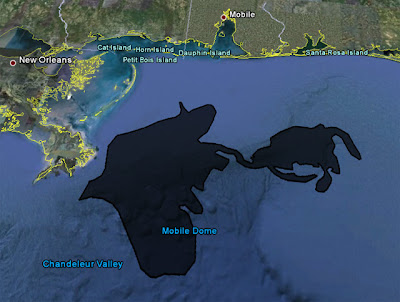 Despite the absence of a minimum participation trigger the BP oil settlement is likely to dispose successfully of the economic loss claims against the company.
Despite the absence of a minimum participation trigger the BP oil settlement is likely to dispose successfully of the economic loss claims against the company.Little is known about the BP settlement with the Plaintiffs Steering Committee in the BP gulf oil spill cases, but informed opinion is beginning to enter the public discussion. Prof. Ed Sherman (Tulane) makes the observation that there is no trigger to actuate the BP settlement. In the Vioxx cases it was 85% - not until that percentage of claimants signed on did Merck have to fund the settlement. In the WTC cleanup cases it was even higher. Absent in BP. The problem is that the litigation barely got started! Louisiana has a one year statute of limitations, but state claims proved insignificant. Maritime claimants for personal injury or death have 3 years under the Uniform Statute of Limitations for Maritime Torts. Same for Oil Pollution Act claims.
So what will be the wedges to get wide acceptance?
First - cash on the barrel head. Most claims are small claims. Only aggregation makes the undertaking viable for lawyers. And most of those claimants will take the money and run - reducing the viability of prolonged litigation.
Second - categorization of recognized claims in a "grid"will greatly increase certainty. Recognized categories will be broader than any court has recognized. That limits the appeal of litigation in hope of a broader scope of liability or higher damage award. Likely not worth the time, expense, and uncertainty.
Third - exclusion of those not included will reduce the number of claimants. There are surely thousands of "moratorium claims" for layoffs and lost sales during the U.S. mandated moratorium on deepwater drilling. That exclusion will be loudly voiced at a "fairness hearing" but ultimately will be resolved in the United States Court of Appeals (or higher). I wouldn't bet my boat on that if I were a plaintiffs lawyer in Louisiana.
Fourth - there are going to be class certifications with damages formulas. A good definitional puzzle. FRCP Rule 23 commonality is hard to establish. What about Amchem and the right to an individual day in court? It's not like calculating losses in a securities fraud case. Market prices and dates of disclosure make securities losses easy to frame. Even pure economic claims here have a high degree of diversity. Fishermen's losses have a lot of variability - because the catch varies year to year. Averaging helps, and there will surely be a dose of that - extending the comparison period beyond the year 2009 and 2010 partial year used by Feinberg in the GCCF. Many business losses will also be hard to show. Such uncertainty inclines one toward the bird in hand. - GWC
What BP bought in $7.8 billion deal with plaintiffs' lawyers: (Alison Frankel's On the Case, Thomson Reuters)
"Defendants in recent mass tort settlements have typically insisted on provisions that call for deals to dissolve unless a certain percentage of plaintiffs sign on. The BP settlement, by contrast, has no such requirement. Edward Sherman of Tulane University Law School said that BP might have reckoned it wasn't worth holding out for certainty. (A spokeswoman for BP declined to comment.) "Rather than putting the whole settlement at risk if they didn't achieve that, I think they were just willing to believe there was not going to be massive opt-outs," he said.
We'll find out soon enough whether that turns out to be true"
'via Blog this'

No comments:
Post a Comment